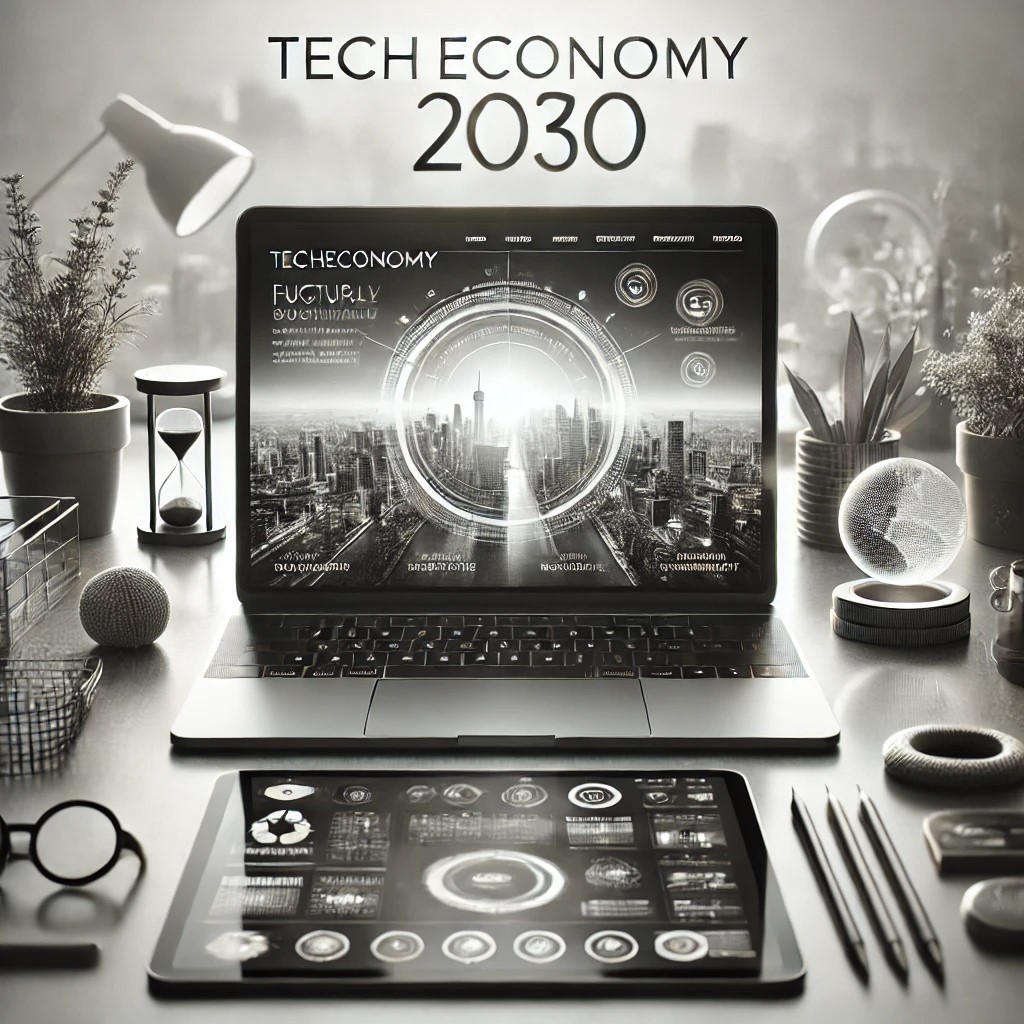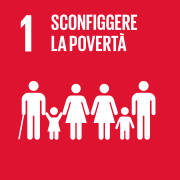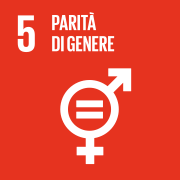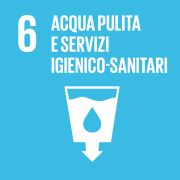
A Journey of Transformation and Innovation
The journey of Tech Economy 2030 continues, evolving once again. Twelve years have passed since 2012, the year Tech Economy began its journey, already looking at the impacts digital technologies would have on society and the economy. Since October 26, 2019, the date of its transformation into Tech Economy 2030, we have started to explore even more determinedly the connection between digital transformation and sustainability, broadening our vision and ambitions. Today, we proudly announce a new chapter: Tech Economy 2030 completes its transformation, began with the creation of the Foundation for Digital Sustainability, to better align with the Foundation’s mission. In this new phase, with a refreshed design and editorial project, it strengthens its role as the official house organ of the Foundation, further enhancing its commitment to sustainability.
Today, Tech Economy 2030 concludes its transformation, which began with the creation of the Foundation for Digital Sustainability, to better align with and support the Foundation’s mission
A Path Defined by Innovation and Commitment
When, in 2019, Tech Economy 2030 took shape based on the experience since Tech Economy’s inception in 2012, we carried forward a vision that explore how technology could influence society and the economy. As we recalled at that time, “Tech Economy was already focusing on the sustainability impacts of technology on society and the economy” laying the groundwork more conscious and sustainable future. In 2021, with the creation of the Foundation for Digital Sustainability, this vision gained new energy, transforming into a concrete mission: to demonstrate that “Digital can be a driver of sustainable development“
We decisively focused on themes of digital sustainability, contributing to the goals of the 2030 Agenda. Since then, we have worked to demonstrate how digital technology can be a driving force for sustainable and inclusive development, sharing stories, data, and perspectives about a future where technology and sustainability are deeply intertwined. This attitude, also guided us in 2021 when the Foundation for Digital Sustainability was officially founded, a major milestone that turned the initial idea into a solid structure, ready to make digital technology a catalyst for change in the environment, economy, and society.
Over the years, Tech Economy 2030 has been an authoritative voice on these topics, enriched and empowered by the expertise pool of the Foundation for Digital Sustainability. The ability to draw from a network of high-level experts, researchers, and stakeholder, and simultaneously engage directly with this ecosystem of knowledge, has been its greatest added value. This connection with the Foundation has expanded the publication’s content, making it a reference point not only for analyses and in-depth insights but also for a narrative that integrates academic knowledge, corporate experiences, and institutional perspectives.
Four Years of Digital Sustainability
The story of the past four years has been written through the activities of the Foundation. During this period, we have consolidated our network of partnerships, initiated innovative research projects, and launched initiatives that have showcased the potential of digital sustainability. We have developed analytical tools such as the Digital Sustainability Index (DiSI™) and its applications, which allow us to concretely measure the level of digital sustainability of citizens, businesses, and regions.
Projects such as the Foundation’s vertical groups, including those focused on the role of digital transformation in the water sector, Artificial Intelligence and Sustainability (which resulted in a value Manifesto), and our Digital Sustainability Observatory, have introduced new ways of addressing environmental and social challenges. Through the Digital Water Group, we have explored solutions for the sustainable management of water resources, involving small and large Italian water utilities. The Artificial Intelligence and Sustainability cluster analyzed how AI can become a tool to reduce environmental and social impacts, maximizing its role as a development lever while addressing the ethical challenges that lie ahead.
At the same time, initiatives such as the Digital Sustainability Award and the Digital 4 Aid project have shown that technological innovation can deliver tangible benefits for society. The Award inspired hundreds of young talents to explore the theme of digital sustainability, while Digital 4 Aid demonstrated how technology can be used to solve complex social problems, as exemplified by the My Smart Diary project, dedicated in supporting eating disorder care.
Tech Economy 2030: A New Role, the Same Mission
As the house organ of the Foundation, Tech Economy 2030 consolidates its role as a privileged platform to not only narrate the Foundation’s activities but also those of its members and partners. This new role enables us to delve deeper into themes such as sustainable mobility, inclusive digitalization, urban transformation, and decarbonization, sharing success stories, challenges, and innovations.
We aim to give more space to the protagonists of this transformation: from companies investing in green technologies to researchers paving new paths for sustainable development. We will tell how cities are transforming to become smarter and more livable and how digitalization can become a tool for social inclusion and equity.
The goal is clear: to provide a lens through which journalists, experts, business leaders, policymakers, and academics can better understand the dynamics of an increasingly digital and sustainable world. More than ever, we want to be a reference point for those who seek to address the great challenges of our time.
Looking to the Future
Tech Economy 2030 will continue to serve as a beacon for those who believe in a future where digital technology and sustainability coexist in harmony as levers for balanced growth. In the coming weeks, we will launch several new columns to clarify critical topics. We will continue with the Zero Carbon Channel, activated over seven years ago with ENI, and expand our offerings with new columns: Luca Longo will recount successes and failures of visions of digital sustainability; Lara Lazzeroni will explore the evolution of work in the era of artificial intelligence; Giuliano Castigliego will guide us in understanding how our subconscious experiences this transformation; Beppe Carrella will discuss the paradoxes and challenges of this world. These are just a few examples of the many novelties arriving in 2025.
For now, we present a new graphic design, created by Fattoria Creativa with technical contributions from EHT, both long-time partners of the Foundation. The minimalist black-and-white design, except for the SDGs of the 2030 Agenda, remains at the center of our editorial project. This choice, in an era of form over substance, aims to maximize focus on content.
Today, as in the past, our editorial approach will reject sensationalistic simplifications designed to chase clicks, instead offering authentic, rigorous, and meaningful service. Together, we will continue building a better tomorrow, where digital technology is not just a tool but a driver of sustainability.
















